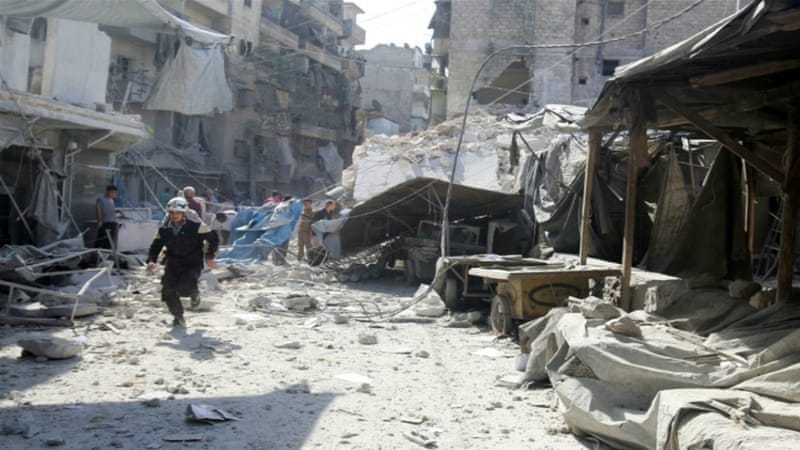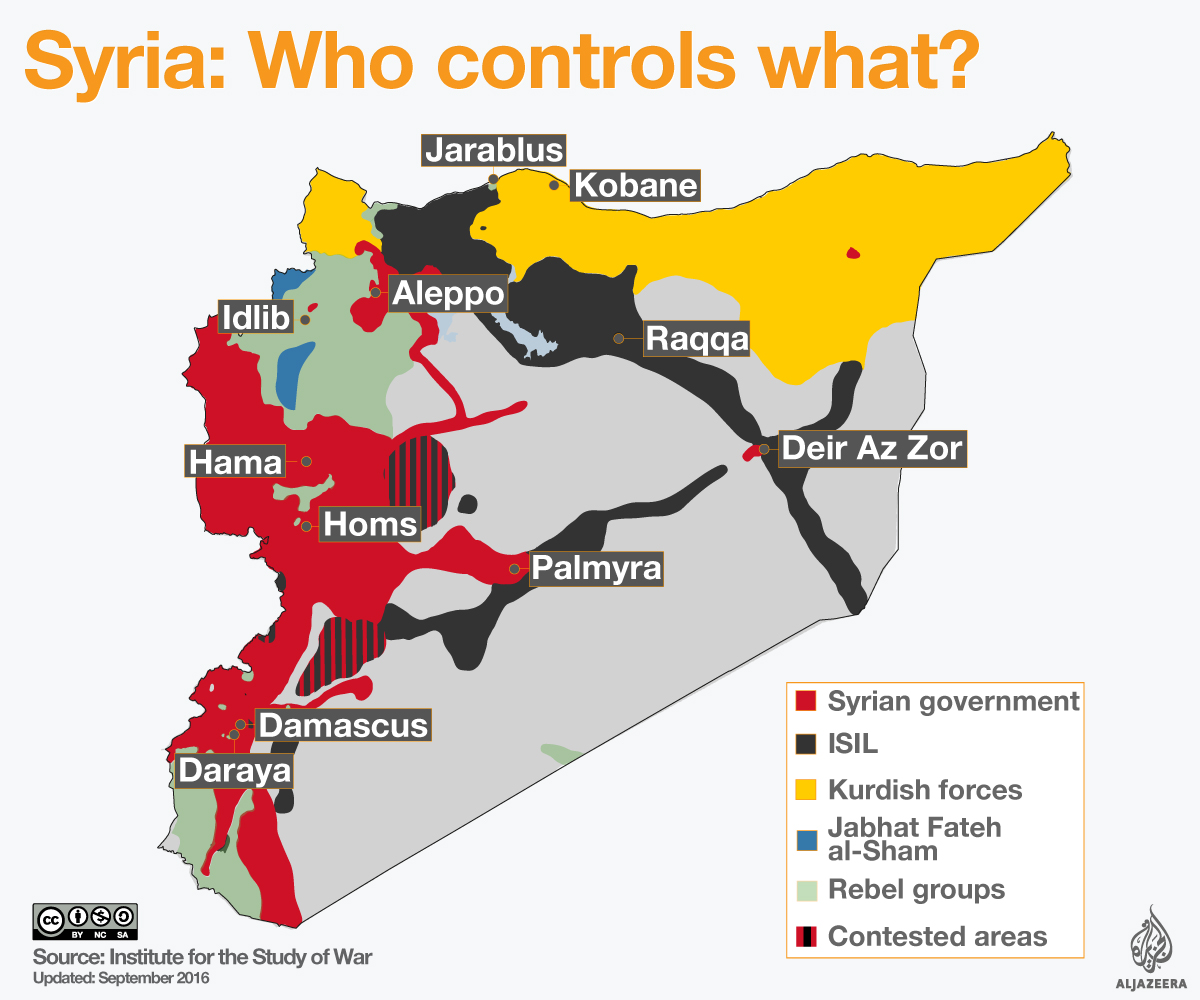Air strikes continue pummelling rebel-held Aleppo as Syrian president says taking city is key to capturing other areas.

The UK-based Syrian Observatory for Human Rights said on Friday that dozens of overnight air strikes had struck east Aleppo, as fighting continued on the northern and southern edges of the city.
According to The Aleppo Media Centre, a group of opposition activists in the city, the overnight air strikes killed and wounded a number of people, with some buried under the debris.
Since the Syrian army's assault against rebel-held Aleppo began in late September, Russian and government bombardment has killed more than 370 people, including 68 children, according to an Observatory toll.
Over the past three days, as many as 100 people have been killed in the raids, rescue workers said, as the air strikes and shelling of the city's east intensified.
The rising casualties in Aleppo have prompted an international outcry and a renewed diplomatic push, with talks between the United States and Russia planned for Saturday.
'Russia-West conflict'
Aleppo, a constant battlefield in the long-running Syrian civil war, has been divided between opposition control in the east and government control in the west since 2012.In an interview with a Russian newspaper published on Friday, Assad said taking back the city, once the country's industrial hub, would provide important political and strategic gains for his government.
"You have to keep cleaning this area and to push the terrorists to Turkey, to go back to where they come from or to kill them. There's no other option," Assad told Komsomolskaya Pravda. "Aleppo is going to be a very important springboard to do this move."
Assad also told the newspaper that the Syrian civil war had become a conflict between Russia and the West.
"What we've been seeing recently during the last few weeks, and maybe few months, is something like more than Cold War," he said.
Assad also said that the actions of Turkey, which is backing Syrian rebels involved in an operation aimed at clearing Islamic State of Iraq and the Levant (ISIL, also known as ISIS) from its Syria border region, constituted an "invasion" and said that they violated "international law".
Diplomatic push
As world powers prepared for new truce talks at the weekend, Russia announced it was ready to give rebels safe passage out of the eastern sector of Aleppo, where more than 275,000 people are under siege."We are ready to ensure the safe withdrawal of armed rebels, the unimpeded passage of civilians to and from eastern Aleppo, as well as the delivery of humanitarian aid there," Russian Lieutenant-General Sergei Rudskoy said in a televised briefing.
Moscow has come under mounting international pressure over the rising civilian death toll from the Syrian army's Russian-backed campaign to take east Aleppo, including Western accusations of possible war crimes.
Analysts said Thursday's safe passage offer was simply a gambit to relieve the pressure by appearing to present diplomatic alternatives.
"There is no change in the Russian strategy: the goal remains the destruction of rebel presence in Aleppo," Syria analyst Thomas Pierret told AFP news agency.
"Blowing hot and cold allows them to reduce the pressure and empower those who want a strictly diplomatic approach to the Syrian question."
Several major international efforts have failed to secure a political solution to Syria's brutal war, which has cost more than 400,000 lives since 2011.
US Secretary of State John Kerry and Russian Foreign Minister Sergey Lavrov are expected to be joined at talks in the Swiss city of Lausanne on Saturday by their counterparts from Turkey, Saudi Arabia and Qatar - all backers of Syrian opposition forces.
Then in London on Sunday, Kerry is likely to meet his European counterparts from Britain, France and Germany.
UN Syria envoy Staffan de Mistura will also attend the Lausanne talks.
 |
Source: Al Jazeera News And News Agencies